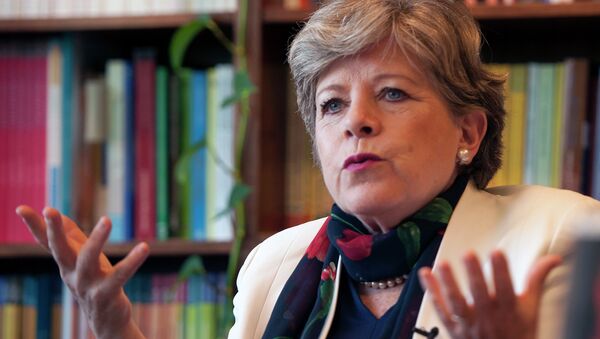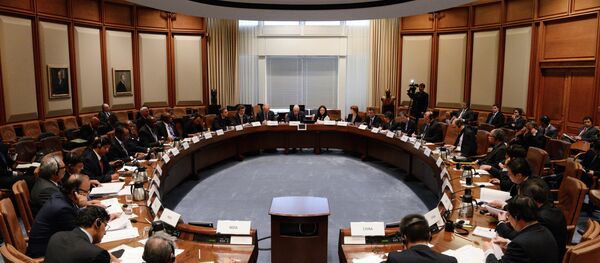"I think that the BRICS Bank as well as the Asian Infrastructure Bank are certainly options that are very important for the [LAC] region because these are the financing institutions that will be able to provide support to the gap that Latin America and the Caribbean have in infrastructure," Alicia Barcena said.
She added that the LAC region will have to invest between 5 and 6 percent of the GDP to improve infrastructure. In that sense, the BRICS Bank and the AIIB are "really interesting options."
On Wednesday, 61 heads of state and government from the Community of Latin American and Caribbean States (CELAC) and EU member states are expected to attend the second EU-CELAC summit in Brussels. The two-day summit aims to boost cooperation between the two regions.
The BRICS New Development Bank, created in mid-2014 by an agreement between Russia, Brazil, India, China and South Africa, aims to mobilize resources for infrastructure and sustainable development projects in BRICS and other emerging economies as well as developing countries.
The AIIB is an international financial institution proposed by China to invest in infrastructure projects in the Asia-Pacific region. The bill establishing the bank was signed in October, 2014. As of April, there are 57 AIIB prospect founding members, including Russia.
Latin American and Caribbean countries must seek economic opportunities in Europe and China to achieve development goals, the executive secretary of the Economic Commission for Latin America and the Caribbean (ECLAC) said.
“The member states of CELAC [Community of Latin American and Caribbean States] should look at the opportunities that we can find with one region [Europe] and with the other region [China] to achieve our objectives,” Alicia Bárcena said.
She explained that while the European Union invests mostly in greenfield projects, finance and energy, China invests in infrastructure development.
According to the ECLAC, China-Latin America goods exchange has multiplied by 22 times since 2000, and China has become the region’s second largest trading partner. Over the same period, Europe-Latin American trade turnover grew 3 times.
“Europe and China are now more or less equal in the exchange of goods and services with the LAC region. The question is what is going to happen in future. While Europe is maintaining its levels more or less stable, China’s objective is to multiply that by two,” Bárcena said.
The recent visit of Chinese Premier of the State Council Li Keqiang to Brazil, Chile, Colombia and Peru proved that relations between the regions are improving, Bárcena said. She explained that Li Keqiang’s visit showed Beijing’s interest in investing more in infrastructure and logistics.
According to the ECLAC, China is currently the second-largest source of Latin American and Caribbean imports and the third largest destination for exports from the region.
The second EU-CELAC summit, bringing together European, Latin American and Caribbean leaders, began in Brussels on Wednesday, with over 60 heads of state or government expected to attend the two-day event.



